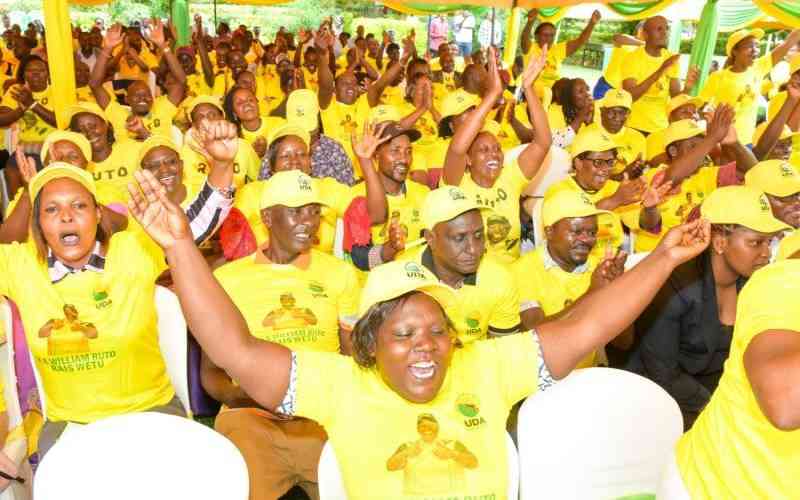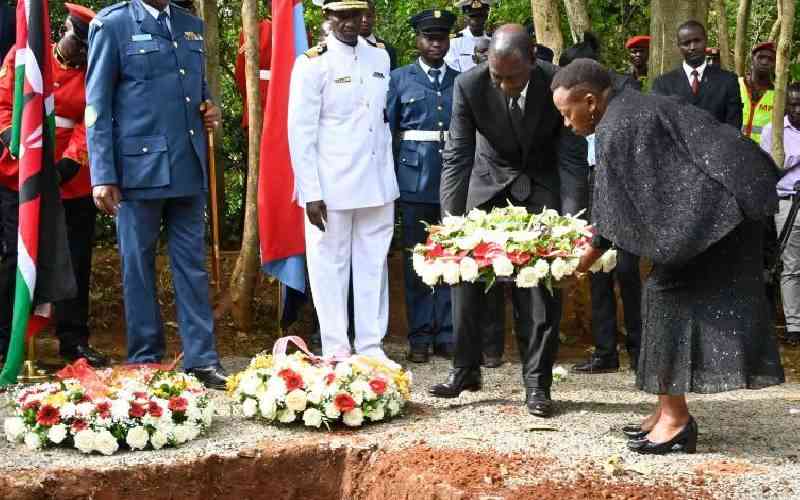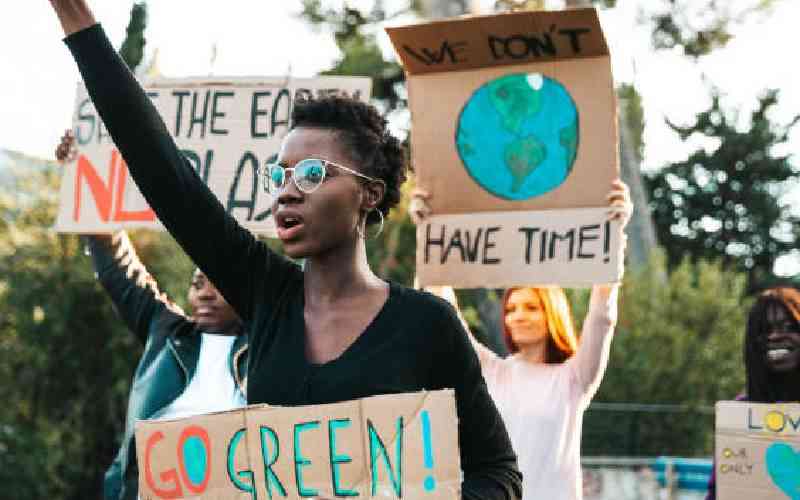Oratory doesn’t come easy. Sincere utterances have, too often, been misconstrued to create mountains out of mole hills. Perhaps buoyed by the positive reception Raila got at Ntimama’s burial, the priest who inadvertently penetrated President Uhuru Kenyatta’s guard did not think the analogy of unity, development and Raila unifying Luos was offensive.
But, for crying out loud, the man is a guileless priest, not a political scientist or hapless politician deserving of the vicious dressing down he got from a man whose mere presence is intimidating. That bit about “tutajuana” (we will get acquainted) was a bit ominous, if you ask me.
I was perplexed nonetheless. What made the President lose his composure; a virtue his exalted office demands of him? We all know where two, or more, politicians from opposing sides are gathered, politics is inevitable. Haven’t our leaders and society at large reduced funerals to forums for attacking each other? Perhaps Raila should have been circumspect in his utterances.
He might have appeared a little injudicious given the solemnity of the occasion. Yet it is possible that Raila had deliberately chosen to apply rule 39 of the 48 Laws of power by Robert Greene; stir the water to catch fish and rule 27; play on the peoples need to create a cult following. In my view, however, the President over-reacted. Ignoring Raila’s digs could have been more effective. The new Jubilee Party logo features two interlocked hands, whether in unity or struggle is a matter of subjective interpretation. Why the mention of Jubilee’s two arms rubbed the President the wrong way is anybody’s guess. The other issue that raised hackles was the preservation of the Mau forest.
I don’t buy into the narrative that the Government will preserve the Mau in honour of Ntimama. That sounds hollow from where I sit. Preserving the Mau is not about honouring any particular individual. The Mau is about millions of Kenyans and our ecosystem. It is about protecting our threatened water towers. The Mau is about wildlife, a source that draws in millions of tourists and the dollars in their wallets that we crave.
Our tourism sector hinges on a healthy wild. Destroying the ecosystem has disturbed climatic conditions. This in turn impedes agricultural production, leads to food shortages even as it enhances conflict between humans and wildlife as they jostle for space and resources.
The late Wangari Mathai and William Ntimama’s roles in protecting the environment cannot be gainsaid. Why did their efforts not bear fruit in their lifetimes? The answer is to be found in lack of political goodwill. Successive governments have accorded the Mau issue perfunctory attention.
The government has tolerated illegal settlements in forests for political expediency. The Government licenses loggers who have been indiscriminately depleting our forest cover to levels below the universally recommended 10 per cent of the total land area.
Available statistics put our forest cover marginally above 6 per cent. The same Government licenses charcoal burners en masse. The omnipresent cartels get their field days too, which begs the question; is the Government willing and equal to the task of protecting the Mau and other forests?
Our leadership needs to shift focus from thrones, useless publicity stunts and gorging itself on choice, succulent pieces of meat while poor tax payers make do with salivating and eating white ants, to issues of concern to the tax payer. To do so requires proper people oriented government policies.
Health has deteriorated to despicable levels despite national government denials. In Busia, tens of children have become cripples and are losing their cognitive abilities because of quacks and lack of safety controls in drugs administrations. Most cancer and heart diseases patients are on a two-year waiting list at the Kenyatta hospital, as if a two-year pause can be enforced on the diseases’ progression.
Children from humble backgrounds cannot access education. Many can’t make it past primary school where, though the perception is that there is free education, too many levies lock them out. Clean drinking water for a majority is a mirage. The sprouting of informal settlements is an indictment on a government that slights social welfare.
It speaks volumes of Government’s attitude towards adequate and affordable housing. These informal settlements are breeding grounds for criminals and diseases courtesy of the dirty environments and lack of amenities. If millions of Kenyans regularly go hungry, are unemployed while others live in tin shacks, carton and polythene paper houses, what value is a modern railway line to them?
There is so much resentment in society, the ticking time bomb calls for sobriety to defuse. Poverty eradication promises are a mere cliché. Granted, someone thought about the Uwezo and women Enterprise funds, among other initiatives, but they might as well not exist because they don’t reach the target groups. The hungry hordes, Jubilee and CORD, that watch the rich ravenously feed, have a bone to grind.
Stay informed. Subscribe to our newsletter
 The Standard Group Plc is a
multi-media organization with investments in media platforms spanning newspaper
print operations, television, radio broadcasting, digital and online services. The
Standard Group is recognized as a leading multi-media house in Kenya with a key
influence in matters of national and international interest.
The Standard Group Plc is a
multi-media organization with investments in media platforms spanning newspaper
print operations, television, radio broadcasting, digital and online services. The
Standard Group is recognized as a leading multi-media house in Kenya with a key
influence in matters of national and international interest.
 The Standard Group Plc is a
multi-media organization with investments in media platforms spanning newspaper
print operations, television, radio broadcasting, digital and online services. The
Standard Group is recognized as a leading multi-media house in Kenya with a key
influence in matters of national and international interest.
The Standard Group Plc is a
multi-media organization with investments in media platforms spanning newspaper
print operations, television, radio broadcasting, digital and online services. The
Standard Group is recognized as a leading multi-media house in Kenya with a key
influence in matters of national and international interest.








